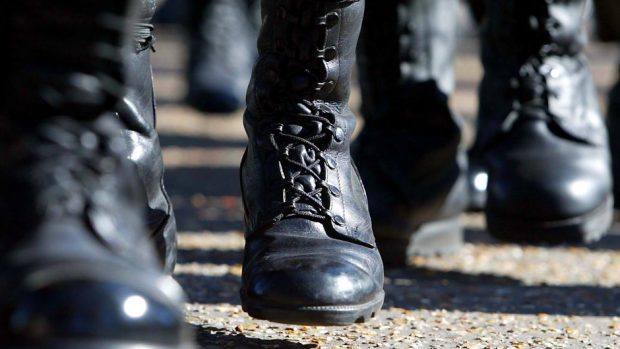A charity is dealing with a “forgotten generation” of young military veterans who are struggling to make ends meet and feeling abandoned.
SSAFA volunteers have revealed there has been a dramatic rise in the number of ex-servicemen and women seeking its help.
A survey of those aged 16-64 who have seen action in some of the world’s most dangerous war zones showed they were living on an average of just £13,800 a year.
Demand for SSAFA’s support services soared by a quarter in parts of the north and north east last year.
The proportion of those in need aged under 60 has more than doubled from 25% to 45% in a decade as veterans of brutal conflicts in Iraq and Afghanistan hit trouble when they returned to civilian life.
One ex-soldier, who faced a battle to get his house adapted after having both his legs amputated, said veterans were regarded as “a nothing” as soon as they left the services.
And one Moray veteran said he regarded himself as one of the lucky ones and relived the horror of a comrade taking his own life after suffering post traumatic stress disorder.
In 2015 SSAFA volunteers in Moray dealt with a 26% rise in cases to 73, while in Sutherland the 32 veterans dealt with represented a 23% rise.
In Aberdeen, they dealt with 175 cases – and made 98 home visits – up more than 24% on the previous year.
There were smaller increases in Ross and Cromarty (up 12% to 60) and Inverness-shire (up 4% to 88). Volunteers in Orkney dealt with six cases, and there were four in Shetland.
The charity called for welfare screening of personnel before they leave the forces and taxpayer-funded mentoring for a year after their return to civilian life.
It said discharge processes should also be improved to ensure service records were shared with appropriate health and welfare professionals.
Four in 10 of those surveyed felt military service made it harder to get a home or a job and 85% said help for ex-military personnel was inadequate – citing the US as an example of how to support veterans.
SSAFA chief executive, Air Vice-Marshal David Murray, said: “They have served our country – sometimes suffered for our country – and yet they feel forgotten.
“We must identify vulnerable service leavers before they walk out of the barracks for the last time.”
Double amputee Tom Burns, who served more than 22 years with the King’s Own Scottish Borderers, said he had faced numerous obstacles.
He said: “As soon as someone signs on the dotted line you are a nothing.”
A Ministry of Defence spokesman said it had invested in health and housing but recognised there was more to do.
